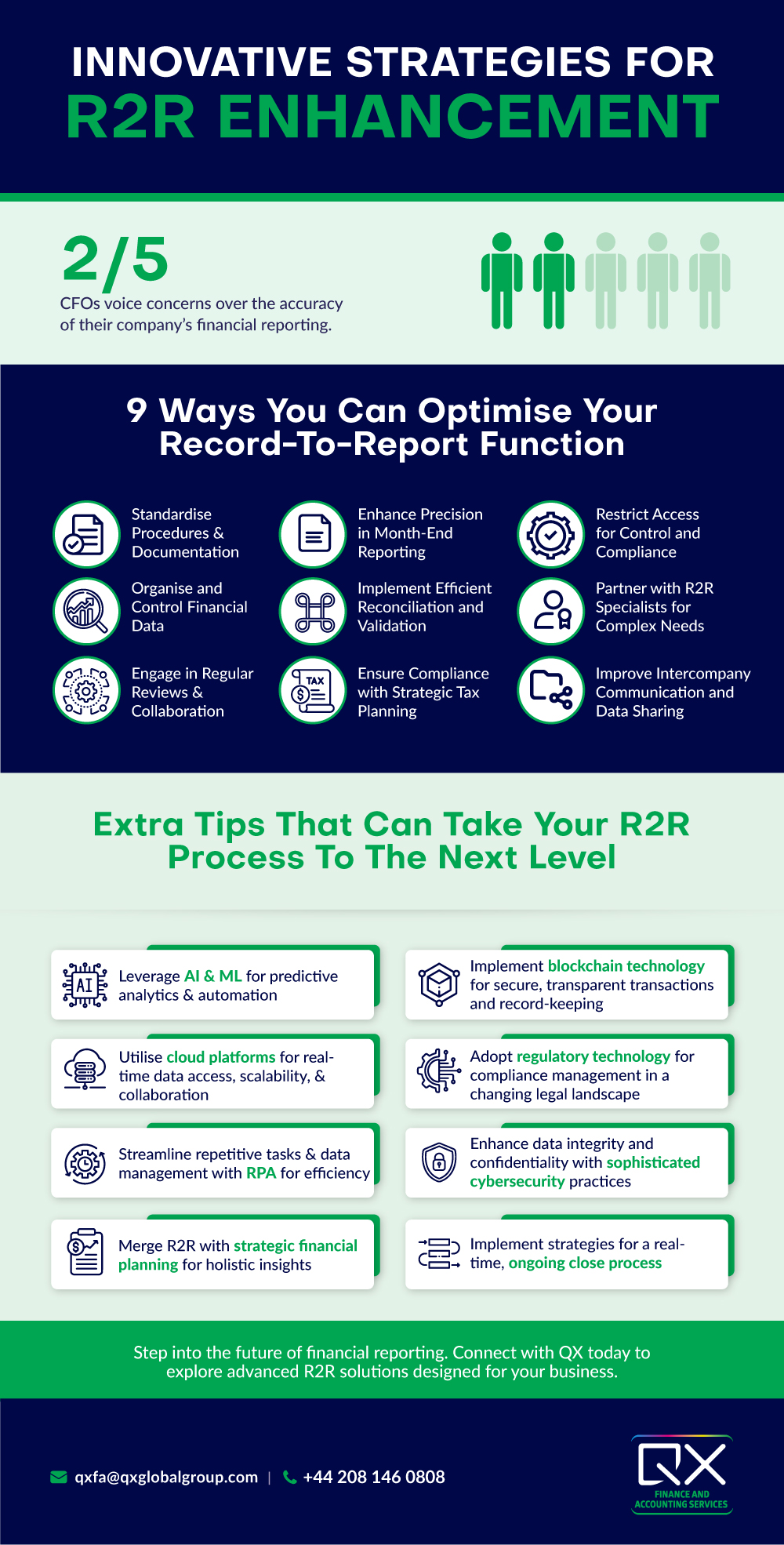Topics: Record-to-report cycle
Posted on March 12, 2024
Written By Miyani Lourembam

Integrity of financial data is critical for every organisation. However, this conflicts with the figures, which indicate that a staggering 40% of CFOs voice concerns over the accuracy of their company’s financial reporting. This revelation underscores a need for innovation within the record-to-Report (R2R) process.
Innovative Techniques for R2R Process Improvement
As businesses strive for excellence in financial management, record-to-report (r2r) process improvement becomes not just an option but a necessity. This infographic delves into transformative strategies and technological advancements to redefine R2R functions. From foundational standardisation to the frontier of AI and blockchain, we present a roadmap for CFOs eager to navigate the complexities of modern financial reporting with confidence and precision.

Ready to simplify your R2R process? Read our infographic on demystifying Record to Report and start building a more streamlined approach today!
Explore how partnering with QX can introduce advanced R2R solutions into your organisation, from AI-enhanced reporting to cloud-based financial systems, ensuring you stay ahead in the competitive landscape. Get in touch with us today!
Effective techniques for R2R process improvement include automating data entry and validation to minimise errors, implementing continuous close processes to enhance efficiency, utilising advanced analytics for better decision-making and insights, standardising procedures across departments to ensure consistency, and offering training and development programs to improve team expertise and adaptability.
A record to report solution optimises financial closing by automating repetitive tasks, reducing the risk of errors, and ensuring compliance with accounting standards. It integrates data from multiple sources, providing a consolidated view that speeds up analysis and reporting. The solution also enables real-time monitoring and adjustments, significantly cutting down the time needed for month-end and year-end closing processes.
The key stages in the record to report process include data collection, where financial data is gathered from various sources; data processing, which involves validating and processing the data for accuracy; analysis, where processed data is analysed to generate financial insights; reporting, which entails preparing financial reports based on analysed data for stakeholders; and closing, where accounts are finalised and the books are closed for the reporting period.
Originally published Mar 12, 2024 11:03:31, updated Jun 24 2025
Topics: Record-to-report cycle